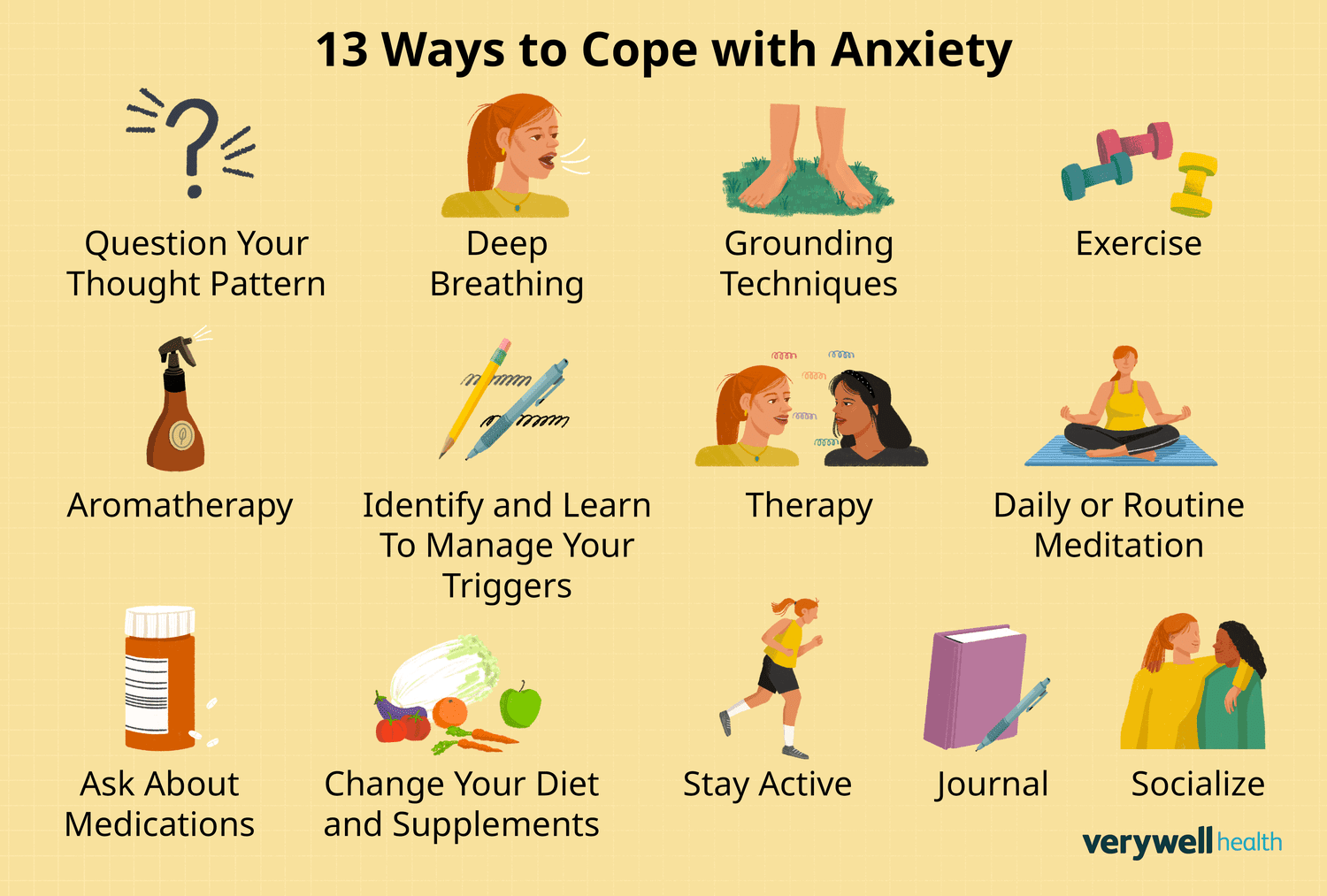Dealing with anxiety effectively involves a combination of strategies that address both the mind and the body. Here are ten methods to help manage and alleviate anxiety:
- Practice Mindfulness and Meditation: Mindfulness and meditation can be highly effective in managing anxiety. These practices focus on being fully present in the moment, which can help break the cycle of anxious thoughts. Techniques like deep breathing, guided imagery, or progressive muscle relaxation can reduce symptoms of anxiety.
- Cognitive Behavioral Therapy (CBT): CBT is a type of psychotherapy that helps people identify and change destructive thought patterns that have a negative influence on behavior and emotions. It’s particularly effective for anxiety, as it teaches new ways to respond to anxious thoughts and situations.
- Physical Exercise: Regular physical activity is key to reducing stress and anxiety. Exercise releases endorphins, chemicals in your brain that act as natural painkillers and mood elevators. Activities like walking, jogging, yoga, or swimming can be particularly beneficial.
- Maintain a Balanced Diet: A healthy diet can impact your anxiety levels. Avoiding or reducing the intake of caffeine and alcohol can help, as they can aggravate anxiety and trigger panic attacks. Eating balanced meals throughout the day can also stabilize blood sugar levels, reducing mood swings.
- Get Adequate Sleep: Lack of sleep can exacerbate anxiety. Establish a calming bedtime routine and aim for 7-9 hours of sleep per night. Try to go to bed and wake up at the same time each day to regulate your body’s clock.
- Deep Breathing Exercises: When anxious, people often breathe more rapidly. This can lead to a decrease in carbon dioxide levels in the blood, causing dizziness or a feeling of lightheadedness. Deep breathing exercises can help you control your breathing and reduce anxiety symptoms.
- Limiting Stimulants: Reducing the intake of stimulants like caffeine and nicotine can help in managing anxiety. These substances can increase anxiety symptoms and interfere with sleep patterns.
- Journaling: Writing down your thoughts and feelings can be a good way to express what you’re experiencing and to spot any recurring patterns in your anxiety. Journaling can also help you identify triggers and develop strategies for dealing with them.
- Social Support: Having a strong social support network is crucial. Talking to friends or family members about your feelings can provide a different perspective, emotional comfort, and advice.
- Learn to Say No: Overcommitting can lead to stress and anxiety. It’s important to be realistic about what you can handle and learn to say no to tasks that will overload your schedule.
Remember, everyone’s experience with anxiety is unique, and what works for one person may not work for another. It’s often a process of trial and error to find out which strategies are most effective for you. If anxiety begins to interfere with your daily life, it’s important to seek professional help.
